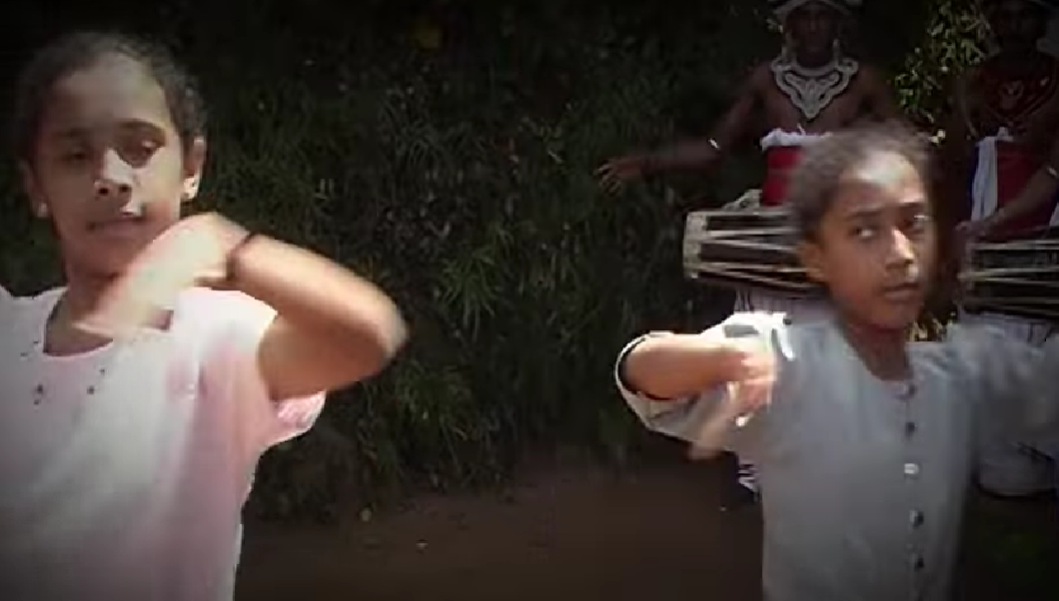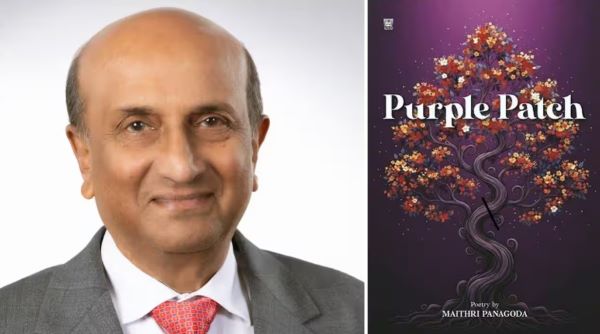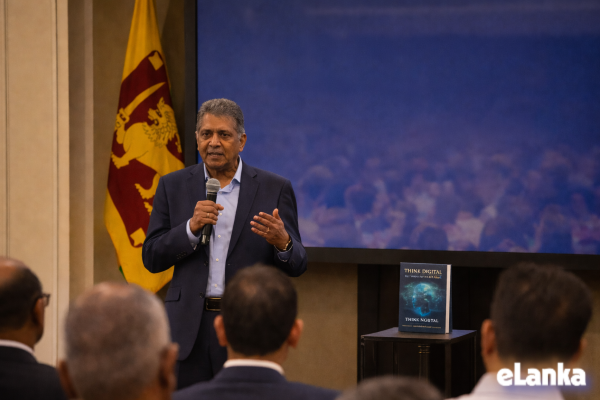Victoria calls on Sri Lankan communities to shape the future of Australia
Teachers build nations: Victoria calls on multicultural communities to step into the classroom
The Victorian Government is promoting a series of incentives designed to encourage more people from multicultural communities to choose teaching as a career, recognising that teachers are the foundation of Australia’s future.
Support includes scholarships, employment-based teaching degrees that allow participants to earn while they learn, assistance in securing their first role, and competitive salaries once in the workforce. Teachers also benefit from strong career progression opportunities and the chance to make a tangible difference in the lives of young people.
Minister for Education, The Hon. Ben Carroll, said the incentives reaffirm Victoria’s position as the Education State.
“Victoria leads the nation in education because we know teachers are the cornerstone of our future. They create the thinkers, leaders and innovators of tomorrow and we want to give them every opportunity to thrive,” Minister Carroll said.
As classrooms across Victoria become more diverse, the State faces a growing need for passionate teachers who reflect the communities they serve. Teachers not only inspire young minds, but also shape the future professionals who will drive Australia’s prosperity, from engineers and doctors to writers, scientists and entrepreneurs.
On why Victoria needs more teachers from multicultural backgrounds, Minister Carroll commented saying:
“As one of the most diverse places in the world, it’s imperative that our classrooms reflect the richness of our state. When students see their languages, cultures and identities reflected in their teachers, it creates a stronger sense of belonging and helps every child feel that their future is limitless.”
Vietnamese-Australian and new teacher Cindy Huynh shared how government support helped her begin her teaching journey:
“After my undergrad, I knew I didn’t want to do another four-year degree. With my employment-based Master’s degree, I’m getting paid to teach while I study, and I’m in the classroom sooner, all while building a solid foundation for once I’ve graduated.”
A meaningful career with lifelong impact
Teaching is one of the most respected professions in Australia. For many in multicultural communities, education is held close to the heart, with teachers seen as mentors and role models who change lives
Victorian teacher Victoria Zivave,who moved to Australia from Zimbabwe and is now a Lead Teacher at a special developmental school said:
“Coming from Zimbabwe, I have a deep sense of community and value how much education can change the direction of your whole life. Teaching is definitely my passion and my calling.”
For those looking for an opportunity to make a difference, the Victorian Government is also offering subsidised and supported rural teaching placements for pre-service teachers. Rural and regional placements give teachers the chance to support communities where quality education can have the greatest impact, while also building their own skills.
Career progression and leadership opportunities
Beyond its life-changing community impact, teaching also offers robust professional development and career advancement opportunities. Career pathways often go from classroom teacher through to leadership roles such as Leading Teacher, Assistant Principal or Principal.
Commenting on this, Victoria Zivave said:
“Career progression has always been important to me. I’ve had the chance to grow while continuing to empower students. Teaching is a leadership role from day one, and it opens doors to so many opportunities.”
For more information on teaching pathways and incentives, visit: www.vic.gov.au/teachthefuture
The Department of Education aims to provide every student in Victoria with equal access to high-quality public education. The recent Teach the Future campaign aims to attract more people to teaching in Victorian government schools. The campaign is part of a $1.8b investment to continue building a strong and sustainable school workforce in Victoria.
Destined to teach: How Cindy landed her dream role.
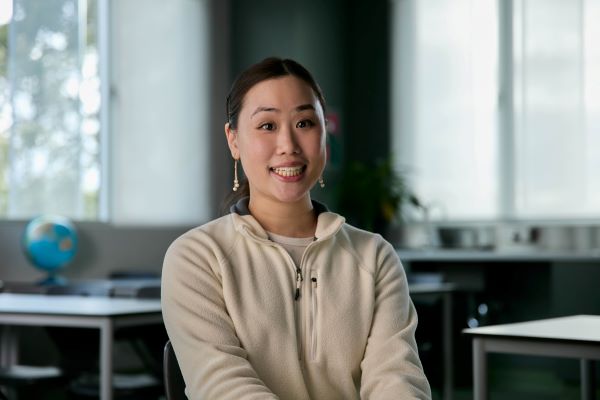
Growing up, Cindy Huynh always thought she’d end up as a doctor or a nurse, but when the opportunity to study teaching came around, she knew it was her true calling. Since her early days as a student, she’s been passionate about learning and understands that having the right teacher can change the way you see the world.
From high school to her undergraduate degree, she tutored primary and secondary students in maths and science. She feels most at home in the classroom and finds it’s the perfect place to make a lasting impact in the community. Over the past two years of her teaching degree, she’s been able to build on her existing skills and incorporate new methods into her teaching.
Cindy is completing her Master of Teaching (Secondary) (Internship). Her course is a Victorian employment-based teaching degree. This is one of many accelerated programs for aspiring teachers, giving them paid practical experience in schools while they study.
In full circle style, her placement is at the same high school she attended. Over 10 years later, she’s changing lives in the same way her teachers shaped hers. When she’s not volunteering as a community martial arts instructor, Cindy teaches Year 8 and 9 maths and science. Her dream is to give her students the same outstanding classroom experience she had years ago.
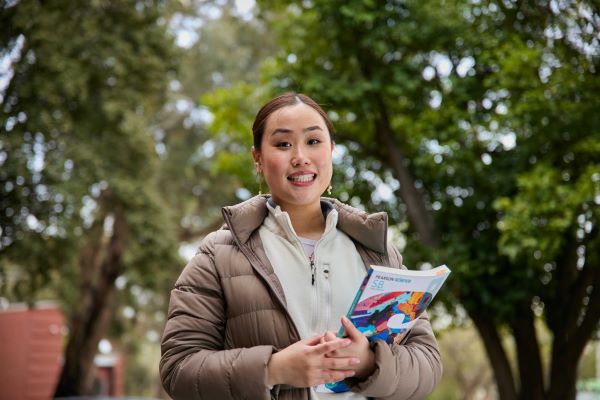
Chatting with Cindy
What drew you to teaching as a career?
I initially wanted to go into medicine. I’ve always been great at STEM subjects, but I knew I wanted to work in a school environment. There’s just something so special about how we connect with the students. It’s interesting because I feel like teaching and medicine have a similar process. They’re both essentially about problem-solving. In medicine, we look at the symptoms, and in teaching, we consider a student’s needs and find the most appropriate approach to reach a desired outcome.
I had really great experiences as a student, so now, when I see students find a sense of belonging in class or when they challenge themselves and master the material, that journey is so fulfilling.
Why did you choose an employment-based teaching degree?
After my undergrad, I knew I didn’t want to do another four-year degree. With my employment-based Master’s degree, I’m getting paid to teach while I study, and I’m in the classroom sooner. All while building a solid foundation for once I’ve graduated.
How do you balance teaching while studying?
It’s challenging but rewarding. There are so many moments of overlap between what we’re studying and what we’re teaching. It can be a steep learning curve, but I’ve been tutoring for years, so it’s not completely new to me.
We learn how to teach effectively and, at the same time, how the broader education system works behind the scenes. You can learn the theory of how to teach, but you don’t fully see it until you’re in the classroom. Finding balance can involve trial and error.
Outside of teaching, I volunteer as a youth group leader and a martial arts instructor. I’ve learnt to bring those parts of the community into the classroom. Engaging with students on a human level, we share our love for anime or TV shows, and I use pop culture to make lessons a little more fun.
What support have you received along the way?
It’s been wonderful to teach at the same high school that I went to. A lot of the same teachers are still here. It’s a little weird calling them by their first names when I used to call them Miss and Sir, but it’s such a privilege to learn from their experience. Everyone is so friendly and helpful, there’s a shared understanding that we’re in this together. I’ve had plenty of mentorship and guidance along the way, including through my employment-based program.
What comes next in your career?
It’s always about the students, finding what they need and the best way to support them. I think that’s what’ll guide what happens next. There are plenty of different roles in schools, so it’s about finding the best fit for me to apply what I know for my students.
What advice would you give to anyone considering a career in teaching?
Teaching is unique, engaging, and there’s not much that can compare to the joy it can bring.
For those who are thinking about teaching or on the journey to becoming a teacher, I would encourage you to understand your teaching style and stay open to ongoing learning. It can be challenging, but the payoff is wonderful. Be patient with yourself as you develop your skills. Keep a focus on offering holistic support for the students. It’s all a collaboration between us as teachers, the school and families.
Start your teaching journey today
Visit vic.gov.au/teachthefuture for more information.
Teacher, leader and mentor: making an impact from Zimbabwe to Australia
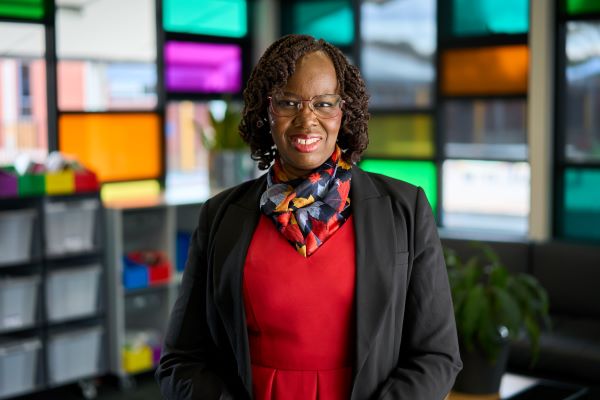
The journey so far
The story of Victoria Zivave’s teaching career begins long before she ever stepped into a classroom. It was in the walls of a Zimbabwean church where she first discovered what it felt like to lead a room and guide her pupils.
Several decades later and an ocean away, Victoria carries that same instinct into her role as a leading teacher in Victoria, Australia.
Taking on a key leadership role at a specialist developmental school, Victoria spends her days blending curriculum design with mentorship. Her impact stretches beyond her own classroom, shaping the students she teaches and the teachers she leads.
Chatting with Victoria
What drew you to teaching as a career?
I’ve always been involved in my church. That was the first teaching I did, and although in a different capacity, I truly loved it, and it inspired me to join the profession.
Teaching is definitely my passion and my calling. Coming from Zimbabwe, I have a deep sense of community and value how much education can change the direction of your whole life. My husband was also a teacher when I started, so it was a bonus to have similar schedules and routines.
Why did you choose to take on a leadership role?
Career progression has always been important to me. I moved into a leadership position to be able to contribute to our education system in a new way. Whether it’s through mentoring other teachers or planning for the school, I can share my unique experience and continue to grow in my role.
I taught in mainstream schools for many years before moving to a specialist school where I am now. I take so much pride in the work we do and how our impact in the classroom has a ripple effect into the wider community.
What does a typical day as a leading teacher look like?
I do still teach, but a lot of my days are around curriculum and mentorship and planning with the leadership team for how things are going in the school.
From the student side, it’s important to know how each one is feeling. Our students have a diverse range of needs, incorporating things like movement breaks and changing activities regularly is an important part of keeping them engaged.
What I find most fulfilling is knowing that I’m making a difference, either for the staff, the school or the students.
How would you describe your teaching style?
My teaching style is fluid. There’s no one-size-fits-all approach; each student learns and understands differently, so we need to teach differently.
When I moved to Australia, I had a bit of culture shock. I had to learn quickly how to adapt to different situations and the different needs of our students. The content doesn’t change much; 1 plus 1 always equals 2. It’s the way students learn that changes.
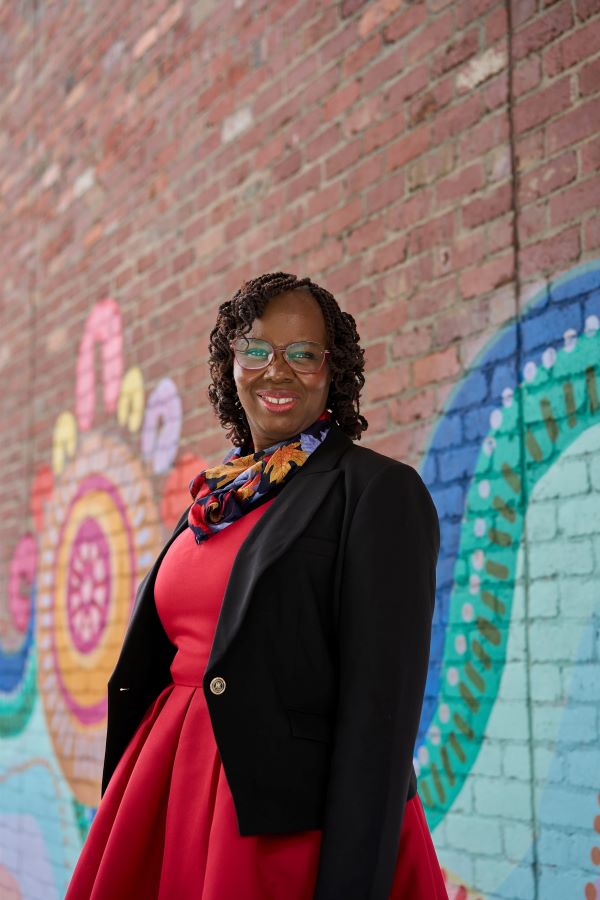
How have you been able to create impact in your community as a teacher?
I still remember my primary school teacher and all the teachers who have touched my life throughout. Our presence encourages our students to feel seen and valued in schools and their lives.
When a student who usually doesn’t speak much becomes comfortable enough to express themselves with me, that’s where I see the real reward of not just our role as teachers, but also in how our students see us and how much we mean to them.
What comes next in your career?
Maybe Principal, or I suppose the natural progression is Assistant Principal first. A role that allows me to continue empowering students and improving our education system.
As much as representation is important for our students, it’s just as important for new teachers to see that career progression is possible and that their work will be recognised and rewarded.
What advice would you give to anyone considering a career in teaching?
When you’re a teacher, you learn every day, and it’s an opportunity to make a big difference. No matter where you go or what you do, the impact you have on your students will always stay with you. Be organised, know your curriculum, and be a great listener. It’s a rewarding career, and there’s a good level of flexibility.
If you’re considering teaching, I say go for it! You’ll get to see and make a change in your community, and also a change in yourself as a person.
Start your teaching journey today
Visit vic.gov.au/teachthefuture for more information.



